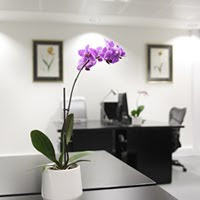However have you ever tried to fit a light switch or replace the washer on a tap whilst answering a call from a potential client? That takes more than multitasking, it takes extra hands.
In a previous life I used to run a plumbing company and we learned quite quickly that you cannot be an effective plumber and answer the phone.
This is particularly the case when you are half way through a job and the phone rings. Best case scenario you just lose your train of thought.
Obviously, one cheap solution is to let the phone ring out to voicemail and return the call later. However if it is a new customer they are probably calling a list of 3 plumbers and the first to answer is likely to get the job.
If you can arrange for someone else to answer that call you have a chance to capture the business as well as projecting an image of an organised, established, reliable company.
What's not to like?
The Virtual Office® was created especially to deal with these issues as we realised that phone calls during an important piece of work are impossible to deal with effectively. Just getting connected to voicemail is not customer friendly, especially if the caller is unsure how to explain what is wrong or need to talk to someone urgently to sort out a problem or query.
A Virtual Office® service allows people to do their business without interference until they are ready to deal with their phone calls and mail.
And with our ISO 9001 certification you can be confident in our strong focus on total quality management. This means that we have procedures in place to make sure that we do everything we should be doing and do it excellently.
Since pioneering The Virtual Office® in 1992 we have spent all our time improving and refining our systems and training to ensure we do not make mistakes that might jeopardise your business.
You can be sure when you're fixing that tap your calls are being answered by a competent receptionist who will manage your callers, take messages and reassure them that they have called the right company for their needs. Your messages are delivered to you by email so you can hear the message and assess it's urgency.
My plumbing company loved knowing that every caller had a trained receptionist handling every call however busy or short staffed we were.
Author: Richard Nissen, Chairman
© The Virtual Office October 2013

